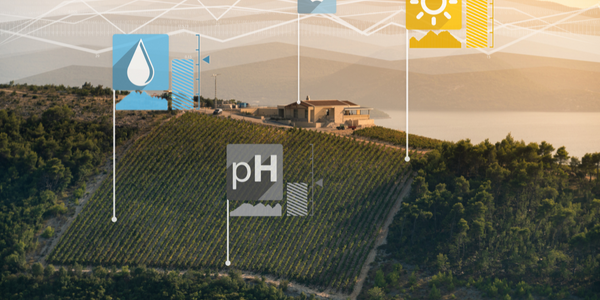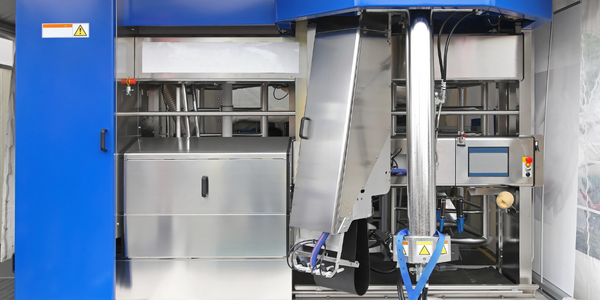
Technology Category
- Application Infrastructure & Middleware - Data Visualization
- Functional Applications - Enterprise Resource Planning Systems (ERP)
Applicable Industries
- Agriculture
- Automotive
Use Cases
- Inventory Management
- Time Sensitive Networking
The Customer
Auto IT
About The Customer
Auto IT is a leading B2B dealer management software system (DMS) company in the Australasian region. Founded in 2000, the company has grown to over 130 staff and 24,000 users in 1,500 dealer locations across nine markets. Auto IT develops and provides innovative software solutions that help retail dealerships in the automotive, agriculture, and trucking industries grow their business, improve profitability, and run more efficiently. Its primary DMS solutions are EQUIP and PMDS, an enterprise resource planning (ERP) and management offering, and Dealer Spectrum, a white-label analytics solution powered by Yellowfin.
The Challenge
Auto IT, a leading B2B dealer management software system (DMS) company in the Australasian region, faced a significant challenge with its clients' reporting processes. Prior to adopting Yellowfin, Auto IT’s clients relied heavily on Microsoft Excel spreadsheets for reporting, a largely manual and inefficient workflow that was not mobile-friendly and lacked modern analytics features such as visualization. As an Independent Software Vendor (ISV) partner, Auto IT needed an analytics solution that could support its customers' growing analytical requirements. The inefficiencies and limitations of the existing reporting system were the primary drivers behind Auto IT's decision to seek a Business Intelligence (BI) and analytics solution.
The Solution
After a three-month investigation into various BI and analytics options, Auto IT chose Yellowfin, a decision driven by the profound benefits they observed during the initial launch with two early adopters. Yellowfin's support for white label analytics allowed Auto IT to embed analytics into its core software and customize Yellowfin’s features to align with its brand. This resulted in the creation of Dealer Spectrum, an additional module for business intelligence that strategically aligns with their core DMS systems. Auto IT manages all administration for the customer through Dealer Spectrum, which has allowed them to monetize reporting requests and open up additional revenue streams. The product delivers insights to customers following the 80/20 rule, with 80% of dashboards being the same and 20% being unique and customized to each customer.
Operational Impact
Quantitative Benefit

Case Study missing?
Start adding your own!
Register with your work email and create a new case study profile for your business.
Related Case Studies.

Case Study
Intelligent Farming with ThingWorx Analytics
Z Farms was facing three challenges: costly irrigation systems with water as a limited resource, narrow optimal ranges of soil moisture for growth with difficult maintenance and farm operators could not simply turn on irrigation systems like a faucet.

Case Study
Integral Plant Maintenance
Mercedes-Benz and his partner GAZ chose Siemens to be its maintenance partner at a new engine plant in Yaroslavl, Russia. The new plant offers a capacity to manufacture diesel engines for the Russian market, for locally produced Sprinter Classic. In addition to engines for the local market, the Yaroslavl plant will also produce spare parts. Mercedes-Benz Russia and his partner needed a service partner in order to ensure the operation of these lines in a maintenance partnership arrangement. The challenges included coordinating the entire maintenance management operation, in particular inspections, corrective and predictive maintenance activities, and the optimizing spare parts management. Siemens developed a customized maintenance solution that includes all electronic and mechanical maintenance activities (Integral Plant Maintenance).

Case Study
Greenhouse Intelligent Monitoring and Control Solution
Farming Orchids is the most successful form of precision farming in Taiwan, and also the most exported flower. Orchids need a specific temperature and humidity conditions to grow and bloom, and its flowering time may not be in line with market demands, so the price collapses when there is overproduction. Therefore, some farmers began to import automated greenhouse control systems for breeding and forcing, which not only improves quality, but also effectively controls the production period and yield to ensure revenue. In 2012, an orchid farmer built a Forcing Greenhouse of about 200 pings (approximately 661 Square Meters) in Tainan, Taiwan. The system integrator adopted Advantech’s APAX-5000 series programmable automation controllers to build the control platform, coupled with Advantech WebAccess HMI/SCADA software, to achieve cloud monitoring. The staff of the orchid field can monitor important data anytime via smart phone, iPad, and other handheld devices, and control the growth and flowering conditions. System requirements: In the past, most environmental control systems of orchid greenhouses in Taiwan used PLCs (Programmable Logic Controller) with poorscalability and control, and could not be connected to the Internet formonitoring from the cloud. For advanced database analysis and networking capability, the PC platform must be adopted. Therefore, PAC Systems (Programmable Automation Controller) with both PLC programming capabilities andPC functions is a better choice.The environmental control of the Orchid greenhouse switches on and off devices like fan, shade net, cooling/heat pump, liquid flow control, water-cooling wall etc. It is controlled by a control panel of electric controllers, and is driven by a motor, to adjust the greenhouse temperature, humidity, and other environmental conditions to the set parameters.










